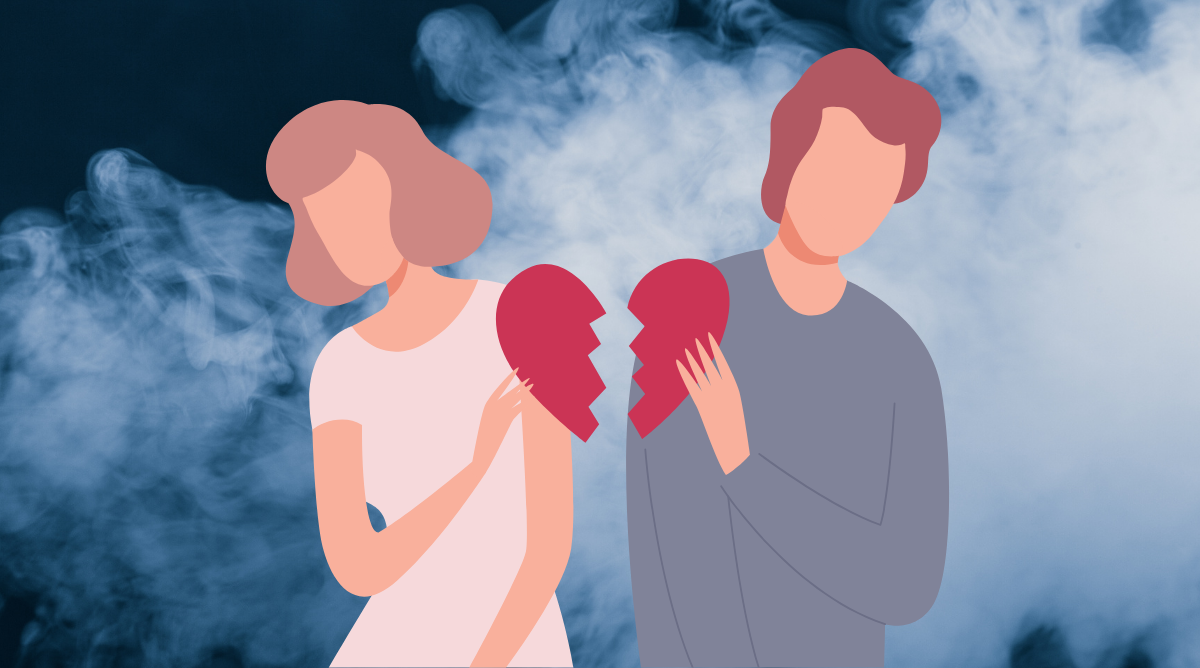
When something bad happens to you, there is usually some kind of support. If you lose your job, your family and friends may rally around you and make you feel better. If you lose a family member or friend, there are mutual support networks that go into effect. To help you cope with the grief and loss of bereavement. There are even rituals for people who lose their pets. But when it comes to divorce? That’s not always the case.
If you get divorced, there may not be the same level of support. In fact, if your relationship has been contentious for some time, those closest to you may be a little tired of hearing about it. And it can be isolating for adults that are divorcing. Not only have they lost a life partner, but it can sometimes feel like there is no one around to lean on.
There is not a lot of empathy for adults going through a divorce. If you are a religious person, your faith may ostracize you for it. Your family and friends could do the same. Adults going through a divorce with children have an increased responsibility to help kids navigate the process with as little emotional disruption as possible. Resources are allocated to the kids, while adults can, in some cases, suffer in silence.
It is not surprising to learn that many people who get divorced, enter a period of circumstantial depression. That is experiencing all the burdensome symptoms of depression, even if they have never been diagnosed before.
When someone goes through a divorce, they can experience a wide range of emotions. It depends largely on the circumstances. Coping with the spectrum of emotions that can range from sadness and depression to anger, impulsive behaviors, or lethargy.
WebMD interviewed an Austin-based expert. Rabbi Misha L. Ben0-David, LCDC, is a life coach and counselor at the Neshama Counseling and Coaching in Austin, Texas. The experienced counselor shared that there are some signs of depression that are common among adults who divorce:
Depression represents a massive upheaval in all the facets of life that make people feel confident. Essentially, it is a familial, spiritual, and financial uprooting. And depending on the nature and length of the relationship, the transition can be emotionally catastrophic.

AARP the Magazine published a recent report called “The Divorce Experience: A Study of Divorce at Midlife and Beyond”. Some of the insights revealed that adults aged forty (40) and older “generally feel that divorce is more emotionally devastating than losing a job, about equal to experiencing a major illness, and somewhat less devastating than a spouse’s death”.
The AARP study also revealed that 28% of people aged forty years and up experience depression following a divorce. And men are more than twice as likely to suffer from post-divorce depression than women.
You probably already knew that there were different types of depression. And that each type of depression had similar characteristics but varied in terms of severity of symptoms. But did you know that there are actually nine (9) different types of depression that can be diagnosed?
Also called clinical depression, and approximately 16.2 million adults have had at least one major depressive episode in a given year. Roughly 7.1% of all Americans have experienced a major depressive episode.
A patient diagnosed with persistent depressive disorder may not always feel like they have depression. It can run in spells or periods of time that last up to two years or longer. But after that, the depression can go away on its own, without requiring ongoing treatment. And the severity of the symptoms can vary.
Often people with persistent depression do not even know they have depression. Because it is transient in nature, some people believe that it is their normal effect. Or personality type. Other patients can experience something called ‘double depression’ where they have both MDD and persistent depression at the same time.
Manic depression can have periods of mania. That means extreme energy and agitation. During a manic spell, family members and friends may not suspect the individual has depression at all. Today, it is no longer called manic depression, but diagnosed as bipolar disorder.
People who are diagnosed with bipolar disorder may experience spells of mania or uncomfortable high energy for seven days or longer. After the period of mania, the individual may be lethargic, low energy, and withdrawn. And the energy high’s alternating with the emotional lows create a teeter-totter emotional experience that makes work, and personal relationships difficult.
Depressive psychosis is a very serious mental health disorder. It can happen after an individual comes out of a major depressive episode. Some of the symptoms involve hearing voices or seeing people who aren’t there. Experiencing sounds, smells and tastes from stimuli that aren’t present. Like smelling your mom’s banana bread vividly even though you are alone at home.
Women who have been pregnant may have experienced this common type of depression. It can happen during the last trimester of pregnancy, or within four weeks following the birth of a child. It is often called postpartum depression because it occurs more commonly after the child has been born.
Perinatal depression is triggered by big hormone shifts in the female body. Combined with insomnia due to discomfort and digestive upset, this form of depression generally results within eight weeks following the delivery of the child.
There is a premenstrual syndrome and then there is PMDD. The premenstrual dysphoric disorder is the Mr. Hyde of PMS symptoms. While PMS tends to involve more physical symptoms such as bloating, swelling, contractions and cramps, and cravings, PMDD tends to center on psychological symptoms.
While irritability, hypersensitivity (emotional and physical), and inflammation are common symptoms of PMS, patients with PMDD can experience all standard symptoms. But at a much higher level of intensity. Some women with the most severe cases of PMDD may experience suicidal ideation or thoughts.
We have all felt that let-down emotion when January rolls around and it is the end of the holiday season. That is one of the best ways to describe seasonal depression. We think it’s because the holiday season is over, and the decorations have come down. But there is a real physiological link to the fall and winter months.
When the days become shorter, we get less natural serotonin, vitamin D, and fresh air. Seasonal depression can be treated with UV light therapy and other methods. But typically once spring rolls around and the sun comes back, people who have SAD feel much better. And experience fewer symptoms.

Situational depression is the emotional response to loss or something bad that has happened. It can also be triggered by illness, a life-threatening event or injury, loss of employment, or the death of a loved one. And if you guessed that situational depression is the most common type that divorcing adults experience, you would be right.
It is hard to know when you are just feeling sad, or when you are actually experiencing diagnosable symptoms of depression. But when a person who is experiencing situational depression takes a depression inventory or ‘test’ they can identify if the symptoms need to be medically addressed.
The one comfort of situational depression is knowing that it will not last forever. It is not caused by a physical condition that will make depression a permanent fixture in your life. However, that doesn’t mean that people experiencing situational depression shouldn’t get support or help, because the symptoms can still be debilitating.
The onset of situational depression is a little later than other types of depression. For example, many people may not start to experience symptoms until three months after the upsetting incident or life change. For the first period of time, they can appear to be adapting well to the trauma. And that is why many people going through a difficult divorce do not get the emotional and medical support they need. And choose to withdraw and navigate it alone.
Something bad happens, and you feel depressed. But if that situation resolves itself? Then you start to feel more like yourself. When a problem that has been making you feel depressed goes away, you can rebound back to your happy, energetic and optimistic self.
Atypical depression is temporary. It is a reaction to an upsetting or negative experience, and the symptoms can include eating disorders and weight gain or loss. Some of the other common symptoms of atypical depression are insomnia and increased psychosomatic aches and pains.
Many more people going through difficult and contentious divorces may have a major depressive disorder (MDD). There was a recent study published by the Centers for Disease Control and Prevention (CDC) that discussed the stress of the COVID-19 pandemic. More adults under the age of thirty years are reporting symptoms of severe depression and anxiety.
The study revealed that when humans are exposed to long periods of stress, they can develop anhedonia. This is a symptom of major depression that numbs the ability to feel. Or even remember what joy, happiness, or pleasure feel like. Consider it an emotional and physical numbing of the body, brain, and emotions.
Researchers believe that anhedonia is triggered by the medial prefrontal cortex (mPFC) of the brain. That is the part of the brain that processes our body’s response to stress. And it is also the area of the brain that helps us value a pleasant experience or reward.
For people who go through a difficult divorce, the years leading up to proceedings can be very hard. Both spouses may be living in a state of chronic stress and anxiety for a long time before they start their separation and divorce. And during that time they may be building toward a major depressive disorder, and not even know it.

At a time with so much uncertainty about health and wellbeing, and the economy and job security, divorce seems poorly timed. As though there is ever a good time to get separated or divorced.
Divorce rates in America were actually up in 2020. Who knew that the stressors of a pandemic would place additional pressure on relationships and married couples? Probably every psychologist, pastor, and marriage counselor in the country.
Remove the ability to socialize like normal outside of the home. Or to have friends and family come over to visit? The social strain alone is difficult to manage. The isolation. If you happen to be a married couple where both of you work from home? Compound that feeling of cabin fever.
Girl’s night isn’t the same on Zoom. And if you have children that are being homeschooled during the pandemic? Oh boy.
In 2021, divorce rates are steadily declining. And the reason, according to many experts, is that uncertainty about the pandemic. In January 2021, we will be approaching the second anniversary of the start of the COVID-19 outbreak. And now, we’re not so sure how long it will last.
And that is the reason why many married couples are hunkering down and staying together. In California for example, divorce filings have dropped over 17% in 2021, compared to the same period last year. There was a surge in divorces in the early part of the pandemic, and now, divorce rates are plummeting.
Love is grand. Divorce can be several hundred grand. Just ask Jeff Bezos about his $38 billion settlement. But divorce when you are the richest family in the world probably doesn’t have the same impact. You launch a new IPO or get involved in some rewarding philanthropy and you feel much better.
For the rest of us mortals, navigating the difficult process and the tsunami of emotions may be the hardest thing we’ve ever done. It is waves of stress upon stress, in every domain of existence. From money to mood, energy, and focus, to health and well-being.
Are you thinking about getting a medical card, and heading to your local dispensary? Cannabis can help people who are struggling with depression and severe anxiety by:
There are strains of cannabis that can also improve focus and concentration. Ask your budtender for strains like Sour Breath, Lucid Blue, or Red Congolese. Those strains can offer a small amount of relaxation and calmness while enhancing focus.
But what you don’t want to do is combine a high-energy Sativa with a high-focus strain or hybrid. You’ll be reorganizing your closet or putting your board games into alphabetical order. And that is the opposite of relaxation and stress relief.
Featured Image: Canva
No Information on MarijuanaDoctors.Com should be used to diagnose, treat, prevent or cure any disease or condition. You can view our Full Disclaimer here.